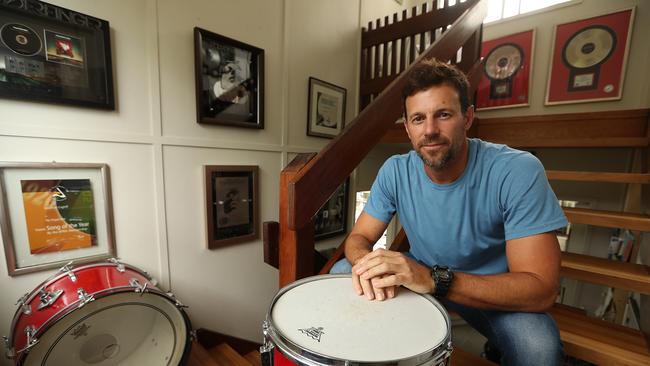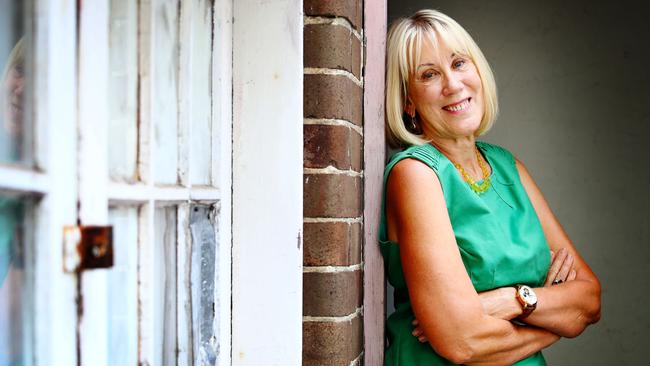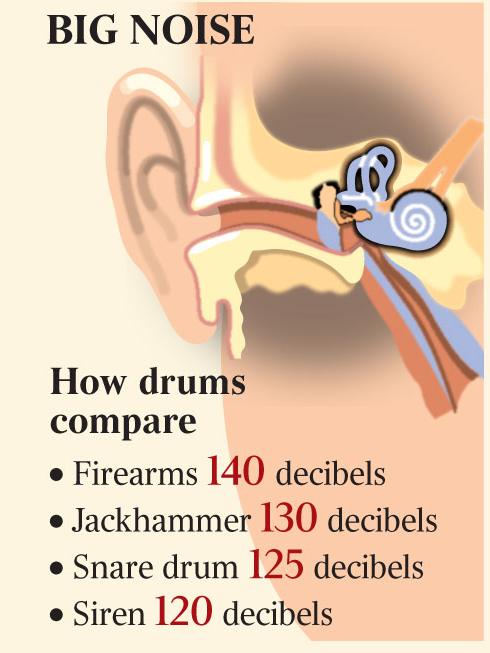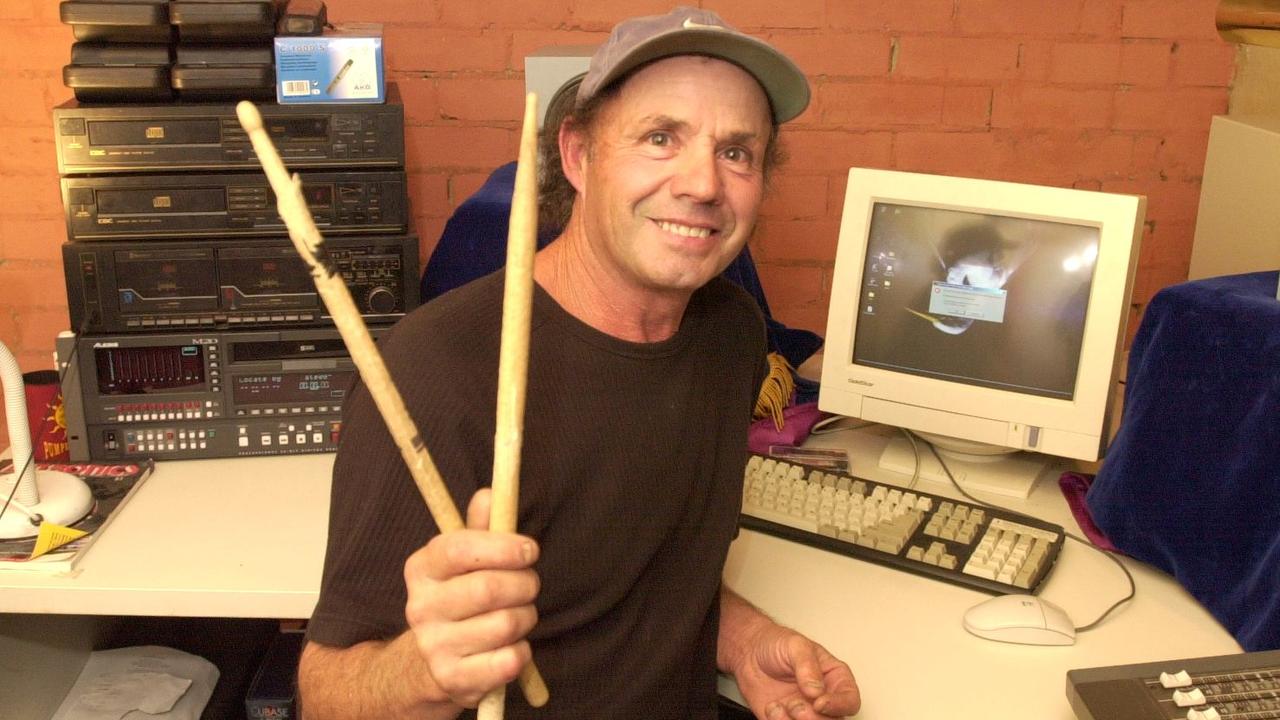Rockers sound alarm bells at tinnitus and hearing loss
Jon Coghill, the drummer for Powderfinger, knows well the sensation of ringing ears after the final note is played.

Anyone who has attended a loud concert will be familiar with the sensation of ringing ears that can last long after the final note is played. Jon Coghill, who spent 18 years behind the drum kit as part of Brisbane rock band Powderfinger, knows the sensation well.
The drummer remembers the wall of sound that surrounded him on stage as a “big, warm blanket”. But he performed mostly without hearing protection and now suffers permanent damage to the top end of his hearing range.
Coghill, now a journalist on the Sunshine Coast, no longer plays drums for long periods.
“My deafness has a role to play in that, because if I play drums for an hour, my ears still ring, and it’ll last a day — even if I’m wearing earplugs,” he said. “I find I can’t really hear my kids that well. Because the tinnitus is at a certain pitch, sometimes I won’t hear the microwave beep, or I won’t hear the washing machine finish, because it’s at a pitch that my tinnitus is blanketing it.”
Today marks World Hearing Day and prominent Australian musicians are calling for more attention to be paid to the silent occupational hazard of tinnitus — an incurable condition whose best treatment is prevention.
Lindy Morrison, the former drummer in Brisbane pop band The Go-Betweens and now the national welfare co-ordinator at music industry charity Support Act, has experienced hearing loss for almost two decades.

“People are talking about mental health among musicians a lot, and they should be equally talking about tinnitus, in exactly the same way,” she said. “Alongside mental health issues, it should become the prime conversation about the wellbeing of musicians and roadies. It is the other large issue that’s prevalent in the music industry, as everyone is affected by this.”
Although tinnitus can be caused by prolonged and regular exposure to any loud noise, musicians are particularly susceptible because they spend long hours practising and performing — often in enclosed spaces, and often without hearing protection.
The potential for injury is not limited to those playing drums or amplified music; a leading viola player is suing London’s Royal Opera House for more than £1 million for lost earnings.
He alleges that despite wearing earplugs, his hearing was damaged irreparably after he was exposed to unacceptable noise levels while sitting in front of an 18-piece brass section during orchestra rehearsals in 2012.

“Tinnitus is defined as any sound that you hear when it’s not being caused by external sound,” said Elizabeth Beach, a researcher at the National Acoustic Laboratories in Sydney. “Any form of temporary tinnitus — such as ringing ears after a particularly loud gig — is a sign that some sort of damage has been done.”
This year’s theme for World Hearing Day, an initiative of the World Health Organisation, is “hear the future”, drawing attention to the expected increase in people reporting hearing loss. A report by the Hearing Care Industry Association estimated 3.6 million Australians were affected by hearing loss last year — a number expected to more than double to 7.8 million by 2060.



